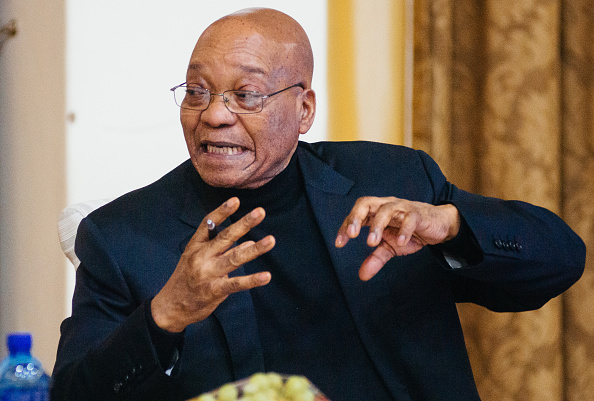Johannesburg – South African investigators on Tuesday released the second part of a keenly-awaited report detailing how rampant corruption under former president Jacob Zuma gutted state-owned companies.
From the more than 1 400 pages released so far by a special commission of inquiry, here are the highlights.
Background
Zuma actually set up the commission himself headed by judge Raymond Zondo in January 2018, after a damning report by the national ombudswoman about corruption at state enterprises forced his hand.
Zuma may have hoped the commission would ease pressure on him, but his own African National Congress forced him to step down one month later to limit the damage to the party from his alleged involvement in multiple graft scandals.
Hearings started in August 2018. In more than 400 days of testimony, some 300 witnesses implicated 1 438 individuals and institutions, including Zuma.
The president himself briefly appeared before the commission, but refused to return to answer questions.
South Africans call the web of corruption “state capture”, because the organs of state were subverted to serve wealthy people and companies.
Tax authority
The report concluded the South African Revenue Service, once a model of government efficiency, “was deliberately captured”.
Zuma handpicked economist Tom Moyane to run it.
ALSO READ | Zondo wants R200m fine or 20 years in prison for ‘abuse of power’
“He dismantled the elements of governance one by one. This was more than mere mismanagement. It was seizing control of SARS as if it was his to have,” it said.
The agency lost more than 2,000 senior staffers, among them top-notch investigators.
National airline
Once a top African airline, South African Airways descended into “an entity racked by corruption and fraud” under Zuma’s crony Dudu Miyeni, according to the report.
Miyeni “unlawfully benefitting from State Security Agency (SSA) resources and enjoyed the protection of undercover operatives, trained overseas in counterintelligence strategies and intelligence gathering.”
Her links to top spies pointed to “how powerful” she was and “how close she was to president Zuma”.
After her tenure, the airline went into bankruptcy. SAA only recently resumed flying a handful of routes around the region.
Transnet
Transnet owns all of South Africa’s rail, ports and pipelines — the logistical backbone of the continent’s most advanced economy.
Under Zuma, Transnet became a cash cow for the Guptas, an Indian family that moved to South Africa in 1993. Their relationship with Zuma formed the nexis of state capture.
ALSO READ: Rampant graft under Jacob Zuma detailed in new report
The report said Transnet was the “primary site” of their corruption, with 41.2 billion rand (2.7 billion dollars, 2.4 billion euros) in contracts “irregularly awarded for the benefit of entities linked to the Gupta family.”
“This amount represents 72 percent of the total state payments tainted by state capture.”
Media
Many of the revelations in the report had already been exposed by South African journalists.
To deal with the torrent of bad press, the Guptas created their own media empire, The New Age – funded by lucrative government advertising deals that “defied logic and legal requirements”, according to the report.
Denel
The formidable state arms maker, which supplies South Africa’s military and exports arms, was headed by a Zuma loyalist so tainted by scandal that he’d been stripped of his right to practise law.
Despite government bailouts, the company was driven into the ground. Denel’s net loss by 2021 was 1.6 billion rand and has since last year been struggling to pay staff salaries.
Zuma
The commission accused Zuma of fleeing the panel “because he knew there were questions that would be put to him which he would not have been able to answer. This is the antithesis of accountability.”
ALSO READ: ‘Defining moment’: Cyril Ramaphosa receives first instalment of state capture report from Zondo
Zuma’s refusal to testify prompted a showdown at the Constitutional Court, which ordered him imprisoned in July 2021 for contempt.
His incarceration sparked riots that left more than 350 dead, the deadliest unrest of the democratic era in South Africa.
Recommendations
While the final report has yet to come out, Zondo has already recommended dramatic legal changes.
South Africa does not have a racketeering law. He recommended a new law against abuse of public power, which would be punished by up to 20 years in prison and up to a 200 million rand fine ($1.3 million, 1,2 million euro).
Follow African Insider on Facebook, Twitter and Instagram
Source: AFP
Picture: Pexels
For more African news, visit Africaninsider.com


